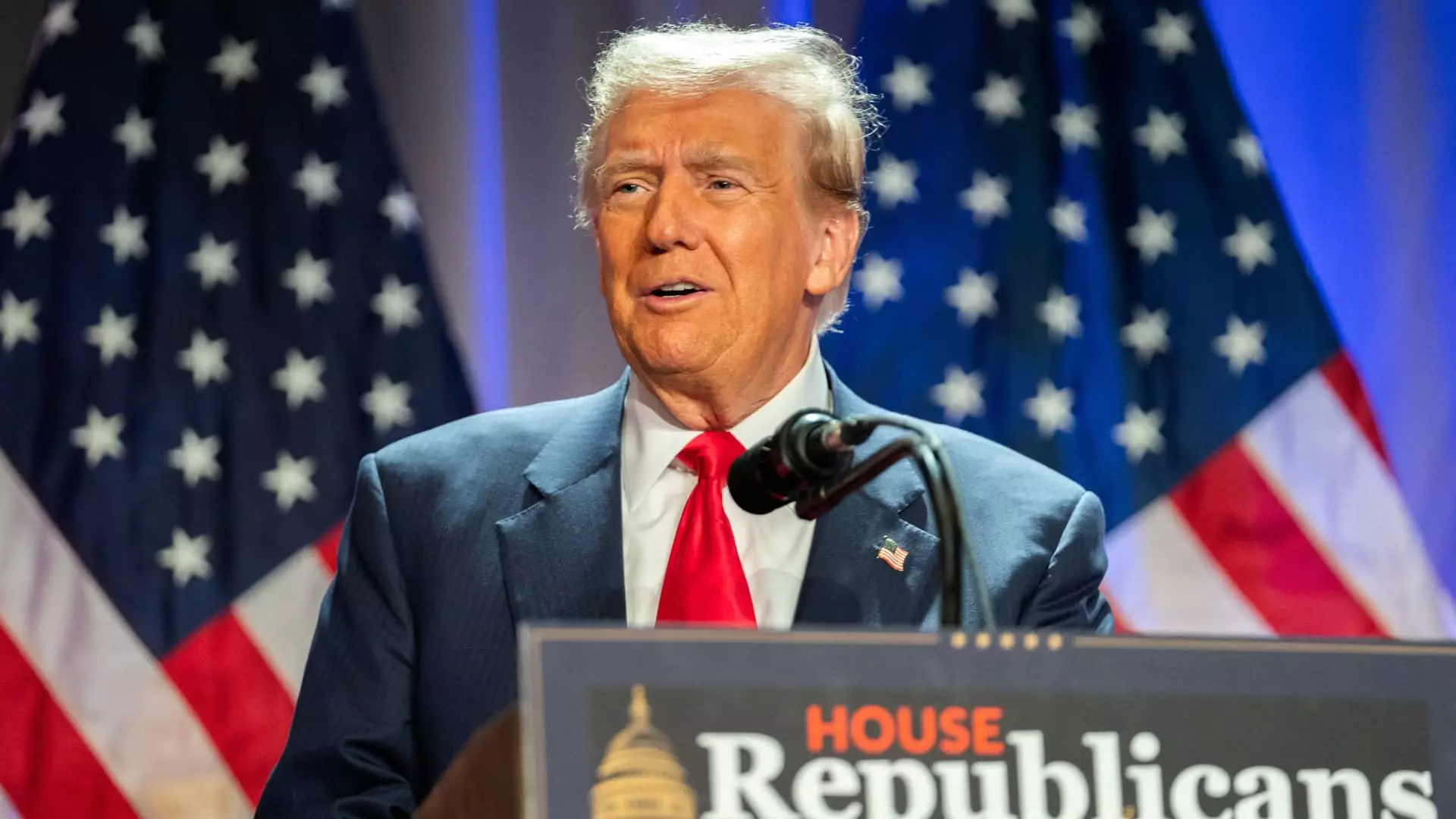In the rapidly changing landscape of American politics, the upcoming congressional discussions surrounding expiring tax breaks and new initiatives from President-elect Donald Trump represent a significant challenge. This complex issue intertwines financial policy, partisan negotiations, and the preferences of various influential interest groups. Lawmakers are walking a tightrope, attempting to reconcile multiple priorities in a society where political allegiances are often overshadowed by the interests of individual constituencies.
The shift of power towards the Republican party, now holding a majority in both the House of Representatives and the Senate, is significant. This majority allows them to initiate sweeping tax reforms through a process known as budget reconciliation. This method is advantageous as it allows legislation to move forward with a simple majority, effectively bypassing the more arduous Senate filibuster. However, with the privilege of power comes the burden of responsibility; the obligation to address the pressing needs of the nation without succumbing to internal party fracturing.
The potential for a contentious debate looms large, particularly as Republican lawmakers represent a broad spectrum of interests—each demanding attention and resources. As Howard Gleckman, a senior fellow at the Urban-Brookings Tax Policy Center, highlighted, the complexities are not merely a matter of Republican versus Democrat: “Legislators will be representing their districts, not their party.” Such a statement underscores the importance of local interests in shaping national policy, revealing an intricate dance of power dynamics that can complicate the legislative process.
Expiring Tax Provisions: A Doomsday Scenario?
One major concern is the forthcoming expiration of key provisions outlined in the Tax Cuts and Jobs Act (TCJA) introduced by Trump in 2017. Should Congress fail to act, critical elements such as reduced tax brackets, increased standard deductions, expanded child tax credits, and sizable estate tax exemptions will vanish after 2025. This looming deadline adds urgency to an already complex debate, as legislators grapple with competing priorities within their party while managing the expectations of their constituents.
Trump’s proposals, which span from eliminating taxes on tips and seniors’ Social Security benefits to proposing new concepts for deductions, further complicate discussions. His advocacy for universal tariffs on imported goods signals a strong inclination towards protectionist policies, raising questions about their long-term implications for the economy. The myriad proposals from the President-elect reflect an ambitious agenda but also introduce additional layers of potential disagreement among lawmakers, thereby escalating the risk of legislative gridlock.
The process of budget reconciliation itself is intricate and involves several stages, meaning that any potential tax reform could take an exhaustive amount of time to process. Specialists in the field predict that navigating this labyrinth of policy may prove to be lengthier than the often-publicized ‘first 100 days’ narrative. The pressing need for a government funding plan, with a deadline set for December 20, might divert legislative attention from tax priorities. Any stopgap measures taken could extend this timeline into early 2025, compounding the urgency surrounding expiring tax provisions.
Reckoning with this reality, Gleckman provides a sobering prediction regarding the efficacy of enacting tax reform within the anticipated timeframe, stating, “The idea that they’re going to do this in 100 days, I think, is foolish.” Instead, he suggests that lawmakers may find themselves wrestling with budgetary issues well into 2025.
As congressional lawmakers prepare to engage in what promises to be a tumultuous series of discussions on tax reform, the stakes have never been higher. In order to navigate this intricate landscape, strategic compromise will be essential amid looming deadlines and expiring provisions. While Trump’s bold proposals may appeal to certain factions within the party, consideration will need to be given to the diverse interests represented in Congress. Ultimately, the forthcoming debates must reflect not just party lines but also the nuanced concerns of the American populace, whose economic health hinges on the resolution of these significant tax policy decisions.

